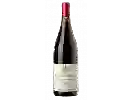
Winery Landron ChartierNatür'Lich Blanc
This wine generally goes well with
The Natür'Lich Blanc of the Winery Landron Chartier is in the top 5 of wines of Loire Valley.
Wine flavors and olphactive analysis
On the nose the Natür'Lich Blanc of Winery Landron Chartier in the region of Loire Valley often reveals types of flavors of cream, apples or strawberries and sometimes also flavors of melon, earth or microbio.
Details and technical informations about Winery Landron Chartier's Natür'Lich Blanc.
Discover the grape variety: Folle blanche
As its name suggests, the folle blanche is a white grape variety. Originally from the west of France, it was used to make Cognac and Armagnac brandies as early as the 17th century and was renowned for its finesse and fragrant nose. Replaced by Ugni Blanc following the phylloxera invasion, the folle blanche is now grown in small quantities. It is a grape variety with juicy, sweet, medium-sized bunches and berries with a white/green skin. Its worst enemy is grey rot. As it is an early variety and its buds come out early, it is particularly afraid of spring frosts. It likes short pruning, a method that limits the production of grapes but increases their quality. It also prefers mineral-rich soils, and its vineyards cover about 3,000 hectares. It is used in the production of the AOC Gros-plant du Pays nantais to produce a lively white wine with little alcohol but marked acidity.
Last vintages of this wine
The best vintages of Natür'Lich Blanc from Winery Landron Chartier are 2017, 2016
Informations about the Winery Landron Chartier
The Winery Landron Chartier is one of of the world's greatest estates. It offers 28 wines for sale in the of Loire Valley to come and discover on site or to buy online.
The wine region of Loire Valley
The Loire Valley is a key wine region in western France. It follows the course of the Loire River on its Long journey through the heart of France, from the inland hills of the Auvergne to the plains of the French Atlantic coast near Nantes (Muscadet country). Important in terms of quantity and quality, the region produces large quantities (about 4 million h/l each year) of everyday wines, as well as some of France's greatest wines. Diversity is another of the region's major assets; the styles of wine produced here range from the light, tangy Muscadet to the Sweet, honeyed Bonnezeaux, the Sparkling whites of Vouvray and the juicy, Tannic reds of Chinon and Saumur.
The word of the wine: Hybrid
Term designating grape varieties obtained from two different vine species.














